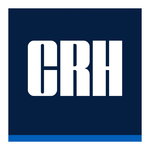London, 29 April 2024, (Oilandgaspress): –Porsche Engineering is one of the first companies worldwide to have validated have integrated it into the development process for new vehicle systems. In the meantime, PERL has already been used for the calibration process in two customer projects. In the first, Porsche Engineering has been cooperating with the FZI Research Center for Information Technology in Karlsruhe and with Porsche for about three years. In this project, PERL is used to coordinate the fuel mixture formation for a new gasoline engine for hybrid vehicles. In the second project, PERL is used for the calibration of vibration damping in the powertrain of a Porsche electric vehicle.
ERL, the virtual calibration software from Porsche Engineering, shifts the majority of ECU data entry to AI. This reduces the need for bench tests and test drives in the calibration phase of the vehicle. The results of initial customer projects demonstrate the huge potential offered by the new methodology.
When applying new vehicle functions, the engineers have to put in an ever-greater amount of work, because with the increasing range of functions and the growing system connectivity of modern vehicles, the number of tests and the number of relevant parameters required for the calibration also increases significantly. In order to be able to cope with the higher complexity in the future while also increasing development efficiency, Porsche Engineering uses artificial intelligence (AI) to calibrate the control units and input data. “With Porsche Engineering Reinforcement Learning—PERL for short—we are turning the calibration of driving functions into a smart decision-making process,” says Matteo Skull, Lead Engineer at Porsche Engineering.
PERL is based on deep reinforcement learning, a self-learning AI process. The basic idea is that instead of optimizing individual parameters, the AI develops a strategy that leads to the best possible calibration result for an entire function. The advantages are the high degree of process efficiency of the methodology, as it is self-learning, and the universal applicability to many areas of vehicle development (see also Porsche Engineering Magazine 1/2021 on the principle of PERL). “Porsche Engineering recognized at an early stage the potential of deep reinforcement learning for the automated calibration of control units. Since 2017, we have been working on PERL together with AI experts from the Porsche Engineering sites in Cluj and in Timisoara, Romania, and have been continuously developing the methodology ever since,” says Dr. Matthias Bach, Senior Manager HV Battery Calibration and Diagnostics and Diagnostics at Porsche Engineering.
Information Source: Read full article
Oil and gas press covers, Energy Monitor, Climate, Renewable, Wind, Biomass, Sustainability, Oil Price, LPG, Solar, Marine, Aviation, Fuel, Hydrogen, Electric ,EV, Gas,




